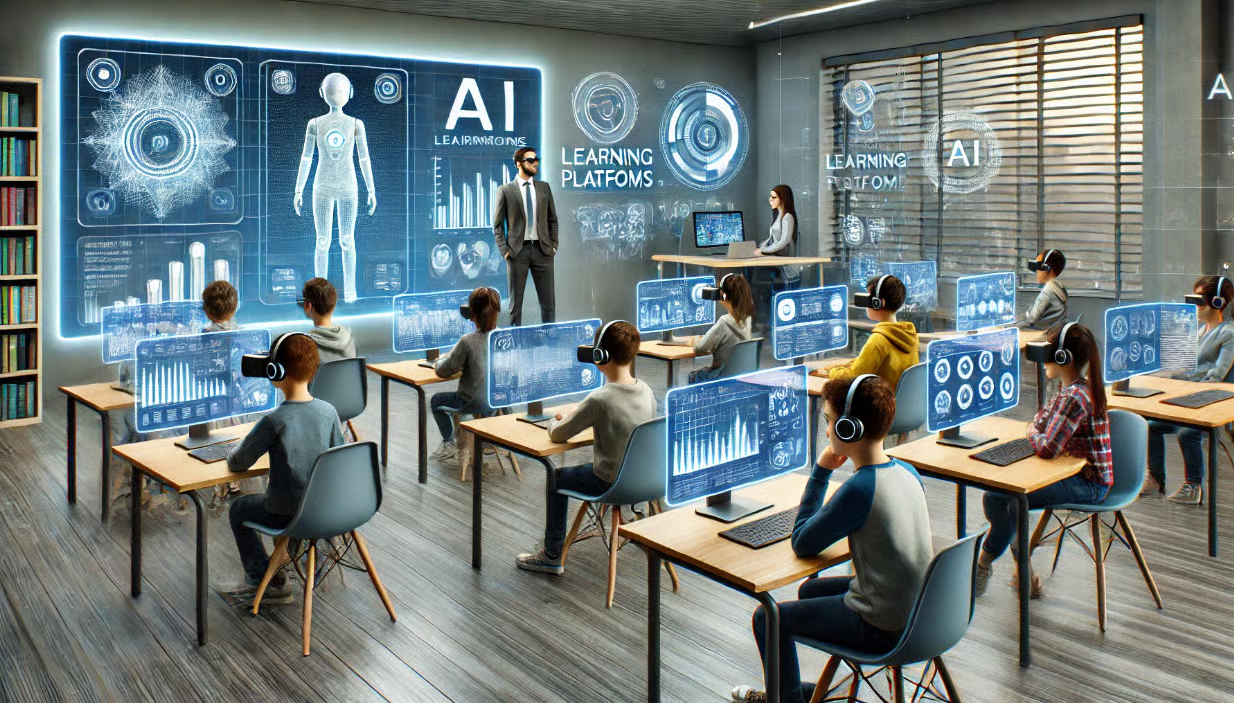Students are returning to classrooms. Artificial intelligence (AI) is now a critical topic for parents to understand. AI is increasingly integrated into schools. Experts are addressing parental concerns. Maya Israel, a professor at the University of Florida, offers key insights. Her focus is educational technology and computer science education.
This AI in classroom parents guide is essential. It helps you navigate AI’s role in your child’s learning. Understanding AI is now more important than ever. This comprehensive AI in classroom parents guide provides answers to key questions.
Key Insights
- The presence of AI tools in K-12 classrooms is growing, impacting learning and teaching methods.
- Parents are encouraged to learn about the types of AI being used and their potential implications for their children’s education.
- Educational technology experts, such as the University of Florida’s Maya Israel, are key resources for understanding AI’s role.
- The discussion often centers on balancing AI’s benefits for personalized learning with concerns about privacy and ethical use.
- Understanding AI’s functionality can empower parents to better support their children’s academic journey in a technology-rich world.
Table of Contents
The Rise of AI in Educational Settings: An AI in Classroom Parents Guide
New technologies are entering classrooms this academic year. Artificial intelligence (AI) is a prominent tool. AI is no longer a futuristic concept. It’s a tangible part of modern education. AI impacts personalized learning platforms. It also affects automated grading systems. Intelligent tutoring is another application. As students settle back into routines, parents naturally seek clarity. How will these powerful tools influence learning experiences?
Maya Israel is a distinguished professor. She specializes in educational technology. Her work at the University of Florida is key. She provides valuable insights for parents. Parents are grappling with AI’s presence in schools. This AI in classroom parents guide aims to simplify complex issues. The conversation goes beyond technical aspects. It includes pedagogical shifts and ethical considerations. These accompany AI’s widespread adoption in education.
Understanding AI in the Classroom: An Essential Parents Guide
AI can seem complex to many parents. Yet, understanding its basic uses demystifies its role. AI in the classroom comes in many forms. This includes adaptive learning software. It tailors content to a student’s pace. AI-powered writing assistants offer immediate feedback. Analytical tools help educators identify learning gaps. They also personalize instruction effectively. These tools promise to enhance education. They make learning more efficient and engaging.
Consider the potential for personalized learning. This is a key aspect for parents. AI systems analyze student performance data. They create customized learning paths. This offers extra support where needed. It also accelerates learning for advanced students. This adaptive approach meets each student where they are. It fosters an effective and equitable learning environment. For more insights on this, UNESCO highlights the benefits in their report on AI in education.
Navigating Benefits and Challenges of AI in the Classroom
AI in education offers compelling benefits. These include improved teacher efficiency. Students get more tailored learning. Yet, concerns naturally arise. Parents often ponder data privacy. They also worry about algorithmic bias. What about AI’s impact on critical thinking skills? How is student data used? Are AI algorithms fair to all? Will students become overly reliant on AI? This AI in classroom parents guide addresses these questions.
Educators and policymakers are addressing these valid questions. Transparent communication from schools is crucial. This includes AI policies and data security. Pedagogical approaches are also important. Experts at the University of Florida develop best practices. They guide schools on responsible AI implementation.
A primary challenge is ensuring AI augments teaching. It should not replace human learning. The teacher’s role remains paramount. Teachers guide students. They foster creativity. They develop social-emotional skills. AI cannot replicate these. AI aims to free educators from tasks. This allows more time for student interaction. It supports deeper instructional planning.
Engagement and Informed Decisions: Your AI in Classroom Parents Guide
Parents should actively engage with schools. Understand the AI tools being used. Learn the philosophy behind their implementation. Attend school meetings. Ask about data privacy policies. Understand AI’s curriculum fit. These are essential steps. Expert resources also provide valuable insights. This helps navigate the new landscape.
Maya Israel’s work at the University of Florida is important. She highlights preparing students and parents for an AI future. Her research demystifies technology concepts. She provides practical advice. This integrates computer science and AI literacy. Understanding AI empowers parents. They can advocate for their children. They can also discuss these technologies at home. This fosters an informed learning experience. This complete AI in classroom parents guide prepares you for such conversations.
The conversation around AI in the classroom will evolve. Parents must stay informed and engaged. This ensures children benefit from AI’s opportunities. It also helps mitigate potential risks. This shapes a positive educational journey. It’s crucial in the digital age.
For more AI in education information, explore reputable resources. Educational institutions and tech organizations offer guidance. Understanding AI basics helps prepare children. AI literacy is increasingly important for their future. This AI in classroom parents guide serves as a great starting point.
Frequently Asked Questions
What types of AI are commonly used in K-12 classrooms?
AI in classrooms can include adaptive learning software that personalizes content, AI writing assistants providing feedback, and analytical tools helping teachers identify learning gaps. These tools aim to enhance learning efficiency and engagement.
What are the main concerns parents have about AI in schools?
Parents commonly worry about student data privacy, potential algorithmic bias, and the impact of AI on critical thinking skills. Transparent school policies, data security measures, and pedagogical approaches are crucial for building parental trust.
How can parents engage with their child’s school regarding AI use?
Parents should actively attend school meetings, ask about specific AI tools and data privacy policies, and understand how AI integrates into the overall curriculum. Engaging with educational technology experts and resources can also provide valuable insights.

